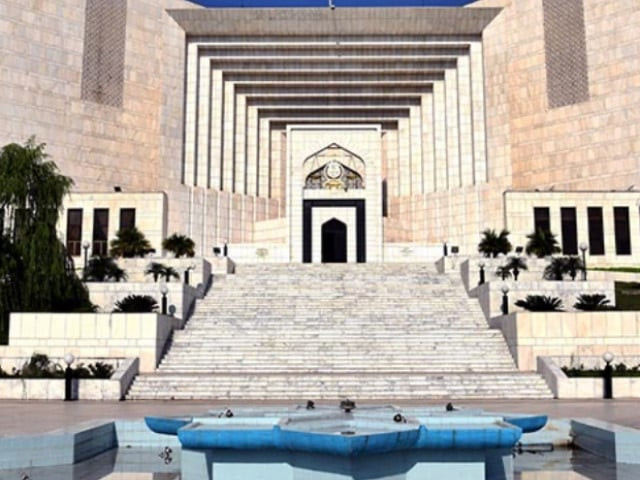Amendments can't undo July 12 ruling: SC
Reiterates that Elections Act changes have no retrospective effect

In a rare move, the Supreme Court has issued a second clarification regarding its July 12 order in the PTI reserved seats case, reiterating that amendments made to the Elections Act, 2017, after the order, cannot retroactively undo the judgment.
On July 12, the SC through a majority of 8 to 5 ruled that the PTI was entitled to the seats reserved for women and minorities, which the Election Commission of Pakistan (ECP) had initially distributed among other parties.
In an apparent attempt to counter the verdict, whose implementation will make the PTI the largest party in the National Assembly, the ruling coalition in August amended the Election Act, 2017, imposing new restrictions on party-switching by independent candidates, in direct conflict with the SC ruling.
In view of the amendment, the ECP on September 26 once again approached the Supreme Court, seeking guidance on allocation of reserved seats to the PTI. The PTI also approached the court later.
Interestingly, ahead of the filing of the ECP application, the SC majority bench had not only provided detailed reasons for deeming Imran's party fit for claiming reserved seats but also listed down the "ECP's failures" to conduct free and fair election on February 8.
On September 14, prior to unveiling of its detailed verdict, the SC had also issued its first clarification of the brief order on ECP's request, noting the commission was trying to "obstruct implementation" of the judgment.
On Friday, the SC issued its second clarification, noting that the court granted relief to the PTI in the short order to enforce the right of the electorate through political parties to have proportional representation in the reserved seats under paragraphs (d) and (e) of clause (6) of Article 51 and paragraph (c) of clause (3) of Article 106 of the Constitution.
"Therefore, the amendments made in the Elections Act after the release of our short order will have no bearing and the Commission is bound to implement the judgment passed by the Supreme Court of Pakistan, in its letter and spirit, without seeking any further clarification," it said.
The bench noted that it had already issued clarification before releasing the detailed reasons and the first clarification issued pursuant to the short order of July 12 was also merged in the detailed reasons.
"The option given by us to seek clarification in the short order was in fact an intermediary window till the detailed reasons were assigned, so in case there arises any misunderstanding as to the spirit or implementation of the short order before the release of the detailed judgment, the parties may seek clarification.
"The detailed reasons have already been released and all legal and constitutional issues raised and argued by the parties have been dealt with eloquently and answered.
"Therefore, no further clarification is required to be issued. The judgment of this court has a binding effect in terms of Article 189 of the Constitution, and should have been implemented," it added.
The bench directed the SC office to send the clarification to the ECP and the representative of the PTI who filed the application for clarification. "Also upload this clarification on the Supreme Court website."
Speaking to The Express Tribune, Advocate Hafiz Ehsan Khokhar said this is the first time in the history of the Supreme Court that a second clarification has been issued when a detailed judgment has been unveiled, a review appeal is pending.
"In this second clarification from the eight-judge bench, an opinion has been given on the amendments made by the parliament. Before doing so, the attorney general for Pakistan should have been heard. The eight judges, bypassing the Practice and Procedure Committee, stated in their clarification that the law cannot be applied retrospectively," he added.



















COMMENTS
Comments are moderated and generally will be posted if they are on-topic and not abusive.
For more information, please see our Comments FAQ